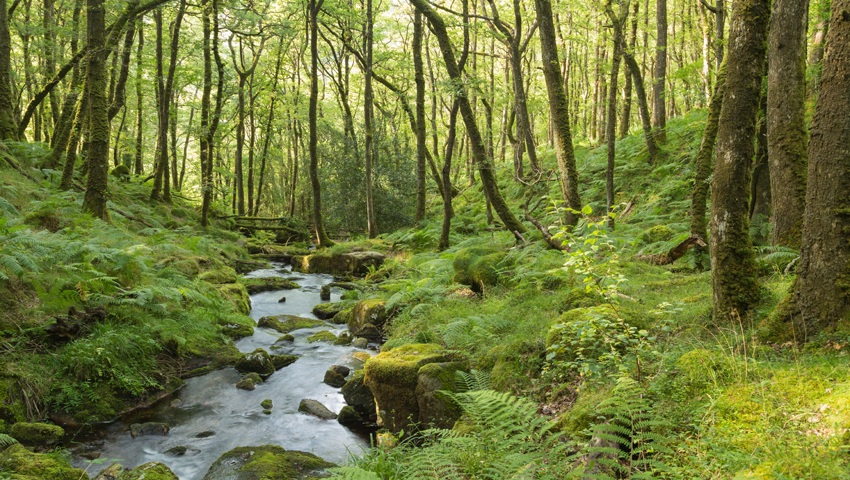A TEAM of experts from across Europe has produced a list of 15 over-looked and emerging issues that are likely to have a significant impact on UK forests over the next 50 years.
This is the first “horizon scanning” exercise – a technique to identify relatively unknown threats, opportunities, and new trends – of UK forests. The aim is to help researchers, practitioners, policymakers, and society in general, better prepare for the future and address threats before they become critical.
Dr Eleanor Tew, lead author and visiting researcher at Cambridge’s Department of Zoology and Head of Forest Planning at Forestry England said, “The next 50 years will bring huge changes to UK forests: the threats they face, the way that we manage them, and the benefits they deliver to society.”
Forestry England, a part of the Forestry Commission, collaborated with the University of Cambridge on the study, which was published today in the journal, Forestry.
A panel comprising 42 experts, who represented a range of professions, organisations, and geographies, reached out to their networks to seek over-looked and emerging issues that were likely to affect UK forests over the next half a century. The resulting 180-item longlist was then whittled down through a series of review exercises to a shortlist of 30 issues. In a final workshop, panellists identified the top 15 issues they believed were likely to have the greatest impact on UK forests in the next 50 years.
The research method did not support the overall ranking of the 15 issues in order of importance or likelihood of occurrence. However, when the issues were scored individually by the panel of experts, it was notable that “catastrophic forest ecosystem collapse” was the most highly ranked issue, with 64% of experts ranking it as their top issue and 88% ranking it within their top three.
“Catastrophic forest ecosystem collapse” refers to multiple interrelated hazards that have a cascading effect on forests, leading to their total or partial collapse. This has already been witnessed in continental Europe and North America.
Dr Tew said, “We hope the results from this horizon scanning exercise serve as an urgent call to action to build on, and dramatically upscale, action to increase forest resilience.”
Another issue identified was that droughts caused by climate change may lead to competition for water resources between forests and society. On the other hand, forests may help to mitigate the impact of floods caused by climate change.
Tree viral diseases were also identified as an issue. In the UK, pests and pathogens are increasing due to globalisation and climate change, with viruses and viroids (RNA molecules) being the largest group on the UK Plant Health Risk Register. However, little is known about how viral diseases affect forest tree species and indeed the wider ecosystem.
A further issue was the effect of climate change on forest management, with extreme weather leading to smaller windows of time when forestry can be carried out. Experts warn that the seasons for carrying out work such as harvesting and thinning are getting narrower as we see wetter winters and scorching summers.
However not all emerging issues are threats – some are new opportunities. For example, trees will be at the heart of future urban planning. Experts predict that “forest lungs” will be created thanks to an increased understanding of the benefits of trees for society. They say there will likely be a greater blurring of boundaries between urban and rural areas, with an increase in green infrastructure and connectivity.
International commitments around nature are also likely to have repercussions at the local level. For example, the mandatory reporting of companies’ supply chain impacts on nature, such as through the new framework being developed by the Taskforce on Nature-related Financial Disclosures (TNFD), could create additional incentives for nature-friendly forest management.
Dr Tew concluded, “These results are both concerning and exciting. However, we should be optimistic, remembering that these are possibilities and not certainties. Crucially, we have time to act ‒ by responding to the threats and embracing the opportunities, future generations can have resilient forests with all the benefits they offer.”
Senior author and pioneer of horizon scanning, Professor Bill Sutherland, from the Department of Zoology at the University of Cambridge said, “We are already seeing dramatic events in Europe’s forests whether fires, disease or bark beetles, whilst the importance of trees is increasingly recognised. Horizon scanning to identify future issues is key, especially as trees planted now will face very different circumstances as they mature in scores of years.”
